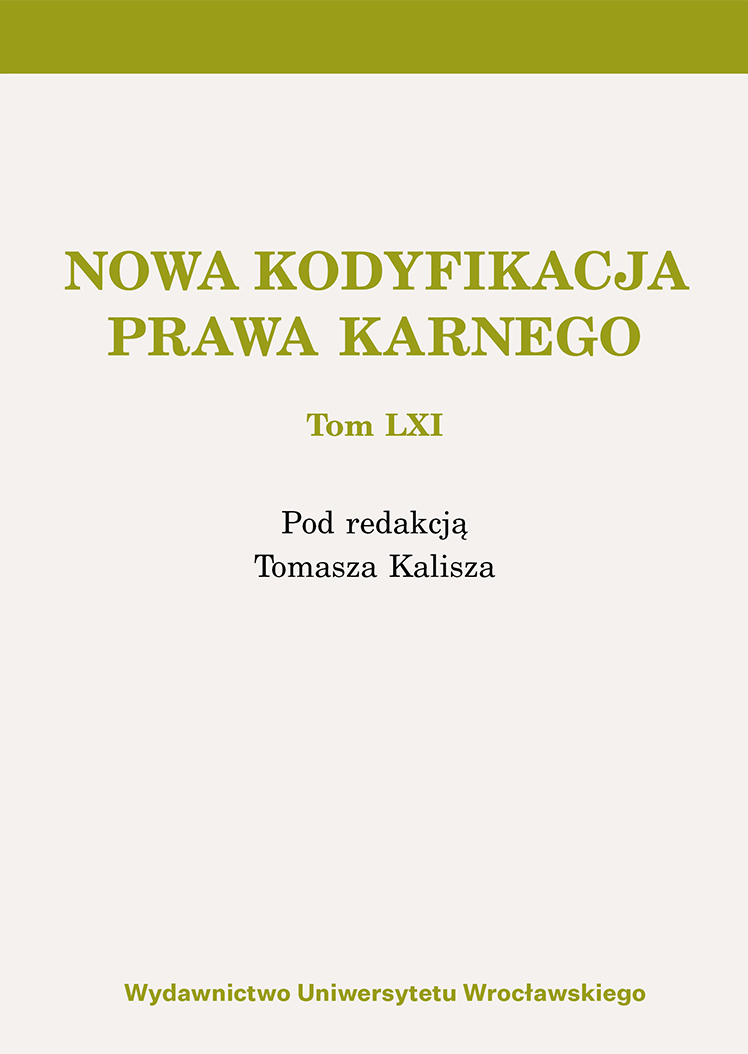

Articles

The institution of exemption from liability for committing a criminal act under the conditions of executing an order has evolved over the years. It plays an extremely important role from the perspective of the guarantee function of criminal law. It also specifically confirms the significance of the obedience principle in military structures as well as in other units to which the provisions regulating it apply in an appropriate manner. The current regulation refers to the principle of moderate obedience being a branch of the “thinking bayonets” theory. The analysis of national and international legal norms as well as doctrine and jurisprudence allows us to draw the conclusion that executing an order constitutes a specific circumstance excluding guilt, somewhat resembling the regulation regarding conflict of duties. Article 318 of the Penal Code does not exclude the perpetrator’s guilt in the case where they commit an offence intentionally — the topic here is a situation in which a soldier consciously intends or agrees to carry out an action which bears the characteristics of a type of a forbidden act, realizes them, even if he is not aware of the unlawfulness of his conduct. The fact that the perpetrator is a soldier executing an order does not, however, exclude the application of provisions of the general part abrogating criminality. Taking these factors into consideration, under suitable prerequisites, guilt or unlawfulness may be excluded on general principles.